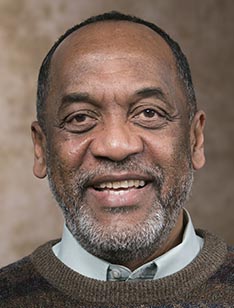Whether Guyana becomes “immensely rich or just another Trump-hole” from oil revenues depends largely on its ability to attract specialty experience and competencies in industry and sectors here, says business website Bloomberg.
“Guyana could attenuate the brain drain by reaching out to its diaspora,” Bloomberg yesterday reported.
“There are more than 100 reported expatriate organizations, and as a group overseas Guyanese consistently send more money back home than foreign investors plow into the economy every year,” the news service added, while referencing data from a recent study by Hisakhana Pahoona Corbin and Luis Eduardo Aragon of the Center for Advanced Amazonian Studies.
This view is echoed by energy expert, retired U.S. Department of Energy Engineer Dr Vincent Adams, who is also Guyanese and with whom Bloomberg spoke to on the issue.
Coupled with the potential revenues from oil is the fact that Guyana is a democratic nation and using both, with systematic soundness and transparency and accountability, could hold the key to this country becoming prosperous. However, Bloomberg reminded that with frail institutions and admittedly scarce human capital to manage the future wealth, the result could be tragic.
“History abounds with tales of raw-material bonanzas turned into, at best, a mixed blessing for poor countries. Dutch disease, corruption (think Venezuela and Nigeria), life support for dictators: the gift of oil comes with many afflictions. A classic International Monetary Fund study found that living conditions in oil-rich nations in sub-Saharan Africa were no better or worse than countries without oil.
“Equatorial Guinea comes to mind,” Rice University energy scholar Francisco Monaldi said, in reference to the Central African dictatorship which, after striking oil in the 1990s, went in a matter of years from desperately poor to desperately rich,” the article states. It also quotes Monaldi as saying, “We know historically that if you’re poorly managed when you received the windfall, you’ll likely have difficulty capitalizing your bounty for development.”
The article also pointed to comments from petroleum adviser to the Guyana Government Dr Jan Mangal during his recent presentation at the University of Guyana, where he said that “Guyana has almost zero capacity now for dealing with oil and gas” and Adams who said “The cream of the crop migrated” and “In terms of local capacity, we are at a serious disadvantage.”
“One of the biggest challenges is who will manage the gusher. Guyana is a nation of emigrants. Some 463,000 Guyanese, or 60 percent of its population, live abroad, and the outflow continues apace. What’s worse, the leavers have included roughly nine of every 10 graduates with higher education — energy experts and oil engineers among them,” the article also noted from World Bank data.
According to Bloom-berg, while government was quick to distance itself from Mangal’s comments, his words are “hard to ignore.”
‘Brain Gain’
Adams told Stabroek News yesterday that Guyana can overcome the lack of experience, specialty and the competency deficit by reaching out to the diaspora for help as he firmly believes that those persons will be more than willing.
“I hear it all the time where Guyanese are always willing to help to turn that brain drain into a brain gain. It has always been a negative connotation. Now here is an opportunity to take advantage of that because it was through that (brain) drain that they got all that knowledge and experience. Now, when they return, I am telling you we will see the brain gain,” he said.
“Most other foreigners would not have your country at heart. They are looking at profit and making gains whereas Guyanese are able to make the sacrifice and give back to their country. They are not just going to pick up and leave. They have relatives and families here and would most times think of their homes. When you hire a foreigner, you have to expect that when things get rough they gone because this is not their country. Most of those people they are not really looking to make a career here or live. They want to get back. When diaspora returns many will already have made their careers overseas so you have (an assurance) that they are not looking for a career … but they want to transfer knowledge. I think it is a major resource and we have to urgently tap into it,” he added.
He believes that the David Granger-led APNU+AFC administration is on the right trajectory in tapping into the diaspora help and made mention of government’s diaspora programme, which he knows that it is working on.
He offered some advice on the structure of such, saying that that while he is no expert on these issues, having a database of persons and their requisite skills would be a good place to start.
“The gains from that will be a really great investment as far as what the country would gain. I feel it would be more than a worthwhile investment. It needs to be managed, where maybe there is a diaspora office within the government but putting a database and management of it should be treated with priority.
“A lot of persons may not have (let’s) say skills in oil and gas or are engineers…but many have successful businesses; all kinds of businesses. If you have a database of all that, when you need advice or people with special competencies, you know exactly where to reach out and let them participate. It has to be a concerted effort to have an integrated programme,” he added.
Since migrating over several decades ago, Adams himself has been giving back to the country of his birth. Throughout the past decades, Adams has been returning to Guyana. He has been Chairman of the Linden Fund USA for more than 13 years, where the group provides education, medical and economic services to the Linden Community.









